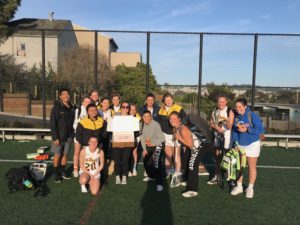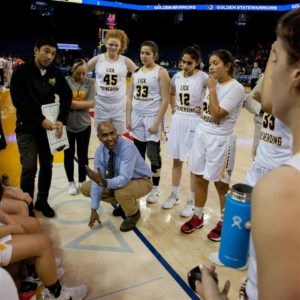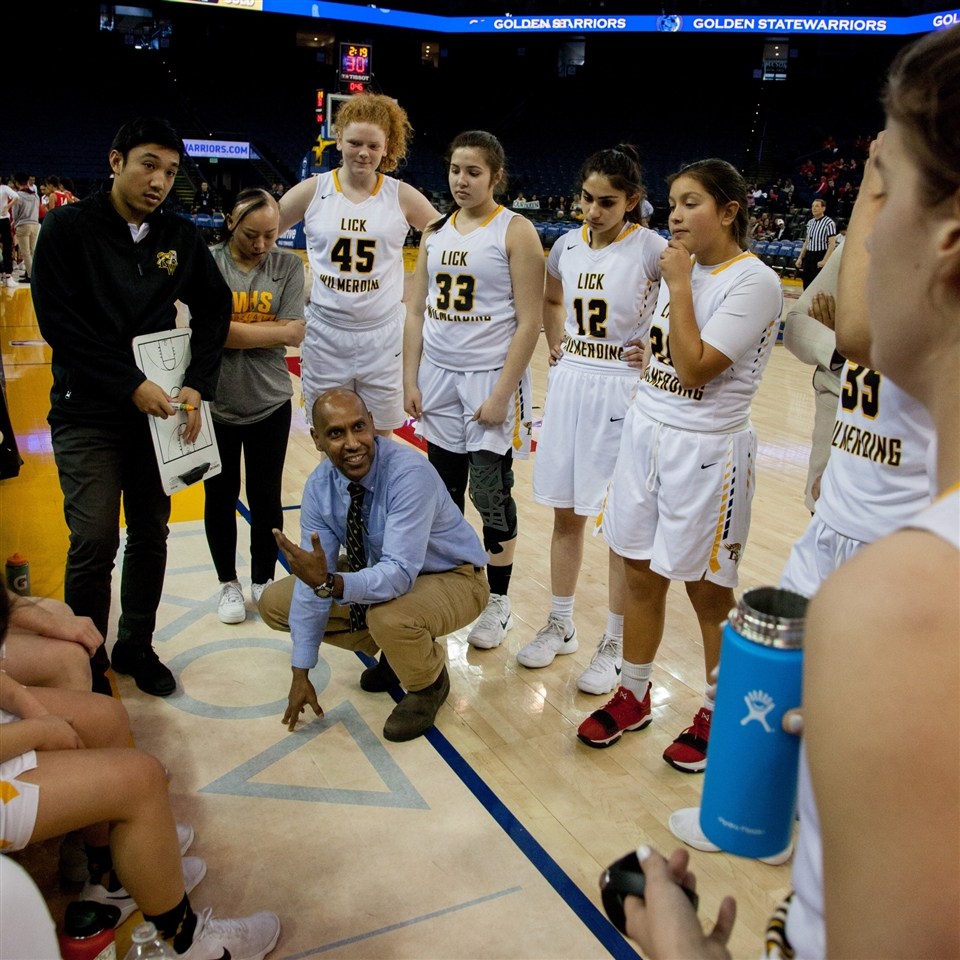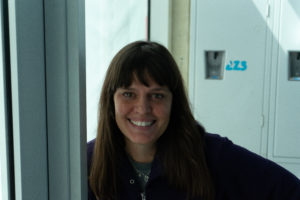As an athlete, I have found that my relationship with sports and my experience as competitor is largely impacted by my coach. Not only does a coach help to shape the skills of a player and dictate the competitive strategy of a team, they also serve to build the mindset and attitude of the athletes. From my experience, both outside of and within Lick programs, a skilled coach who knows how to motivate and connect with their players can make all the difference. In an effort to highlight some of the talented individuals we have among our coaching staff, I sat down with a few of them in order to tell their story.
The two individuals I was able to speak with were Natalie Andreason, a new hire and the head coach for the Women’s Lacrosse team, and Daniel Tesfai, head coach of the Women’s’ Varsity Basketball team.
Before coming to Lick, Andreason began her coaching career at Brigham Young University where she served as a player-coach for several seasons before transitioning into the Head Coaching Position in the spring of 2016. During this time, she was also involved in coaching the Idaho Falls High School Women’s Lacrosse Team. Since her transition from player to coach, Andreason has come to love facilitating the growth and success of her athletes and brings the same passion and intensity to her coaching as she did to her on-field play.
Similarly, Tesfai has a deep commitment to the sport that he once played. Although Tesfai continued to play basketball through college, he feels as though he has been coaching his entire life. He first entered into the realm of coaching at the beginning of high school when he served as a counselor for various summer basketball camps. Continuinghis role as a coaching a more formal way, he began coaching the women’s program at San Francisco State and later, the middle school girl’s team at the Discovery Center School just down the street from Lick. Tesfai recognizes that while his experience before Lick was very formative, his nine years here has been hugely important in shaping his ability as a coach.
Lauren Carothers Liske: What is compelling for you about coaching? Why did you initially make the switch from playing to coaching?
Natalie Andreason: My biggest motivation was to inspire each player on the team to push themselves as athletes and give consistently high level effort. During my time as a player, I always tried to give full effort on the field and as a coach I wanted to help others strive to do their best as well. I think it is important as a coach to see unique qualities and skills in each player and motivate and nurture them to use those qualities on the field in an effective way.

Daniel Tesfai: For me, it was just an opportunity to continue to be involved in the game of basketball. At a certain point you start to realize that the number of years you can continue to play are limited. But also, I love the sense of giving back. Basketball provided me with so many opportunities and taught me how to socialize with other people and be competitive in a healthy manner. Seeing the joy that it has brought to me and others motivates me.
LCL: What is the most challenging aspect of coaching? What is the most rewarding?
DT: For me, the challenge of coaching is balancing my own personal values surrounding the game with the priorities of my players and figuring out how to instill those same values in my players in a productive way. The way that I was coached was rigorous and harsh; I’ve had to learn that there is a different way of communicating. Learning how to be better at conveying my values remains a challenge for me. Sometimes I feel that my message doesn’t translate to the player and they don’t recognize that my demand for them is coming from a place of support and confidence in their ability. Switching to the rewarding aspect of coaching, what I enjoy is just building relationships. Being able to observe the progression throughout a season and the growth of individual players is a great privilege.
NA: The most rewarding part about coaching is helping people develop and achieve their goals and being able to see first-hand the impact that has on a person’s life. In response to the question about the challenges of coaching, I would say that for me the most difficult aspect is definitely having patience. That is still an area of growth for me.
LCL: What is your coaching philosophy? Has it changed?

NA: Part of my coaching philosophy is engaging the athletes so they are independently motivated. I don’t want to have to always be pushing them and externally enforcing their effort level. I want them to want to do their best. As a coach, I cannot tell a player to desire something and expect them to do it. They have to find the desire and intensity to accomplish goals on their own. My job as the coach is simply to help guide them achieve those goals, not to force a commitment.
DT: I would say that my philosophy has definitely shifted over time. As I get older I start to see the bigger picture, it’s not all about the wins and losses. I think for me now wins are just a byproduct of preserveering through all of the adversity, whether that be in game challenges, balancing schedules or navigating relationships with teammates and coaches. Initially, I was very intense and demanding and did not make room for understanding there are things beyond basketball. I have come to understand that with commitment to the sport there also needs to be compromise. My philosophy now is about maintaining high expectations while giving some wiggle room for outside factors.
LCL: What specific strategies do you have in regards to motivating your players or helping them progress?
NA: I find it very important as a coach to constantly be motivating the players every day, and that starts with being highly involved in the practice. I try to pay attention to each and every player out on the field so I can see how they are progressing. I always want to point out the positive aspects of each player to remind them that they are a crucial part of the team. No matter if it is big or small, it is important that the player feels involved. I am a big fan of positive reinforcement because, like I said before, I think it gets the players independently motivated and pushes them to hold themselves accountable.
DT: Trying hard looks different for everybody and sometimes you have to choose between the carrot and the stick. I think for me getting my players to stay motivated and push themselves harder starts with just talking to them and making my expectations clear. I’m not going to lower my demands because a player feels as though they can’t meet them. Instead, I try to let them know that these goals are attainable. Another aspect of this is accepting mistakes and making it clear that it is the difficulty that will lead to their growth. With this I will add that effective motivation of players is still an area of growth for me. I still struggle with setting norms around participation on the team and getting the players to strive to be their best selves both as athletes and students. I feel that in general participation in organized sports better equips individuals to navigate interactions and take on positions of advocacy or leadership. I believe that this comes from practice with balancing their roles on a team. That is why I consider this aspect of player development to be so significant.
LCL: Do you feel that being a coach has impacted you outside the realm of sports? If so, how?
NA: Being a coach has definitely impacted my perspective of many aspects in my life. One of the biggest impacts I have noticed since becoming a coach is that I have found myself being more open to feedback from others. I also have more respect for my parents and all the teachers, coaches and other role models in my life. I feel I better understand the effort they have put into helping others develop and because of this fresh perspective, I place greater value on each of the lessons I learned from them.
DT: My experience coaching and getting different perspectives from my students ensures that I am not so involved in myself. I think that I used to get lost in my own world and everything else was less significant, but now I think I am able to look beyond that limited view.






